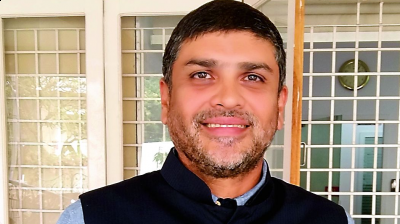Think beyond Babri Masjid, urges Hasan Askari of Helping Hand Foundation
By J.S. Ifthekhar
Hyderabad: With the Supreme Court pronouncing its final verdict on the Ayodhya tangle, many feel Muslims should move ahead and concentrate on real issues. The community should be concerned more about social indices and shouldn’t be bogged down by just the Masjid-Mandir matter.
Important issues such as abject poverty, education, health care, housing, food, personal security and social exclusion are staring at their face. Yet, the community is not thinking beyond Babri Masjid, 12 per cent reservation and Waqf matters. “Muslims do not have a holistic view of what their problems are,” says Mujtaba Hasan Askari of Helping Hand Foundation.
Askari, whose NGO deals with public healthcare, pinpoints several deplorable social indices and wonders what the community is doing to check the malaise. Poverty and illiteracy combined with poor health is a recipe for disaster for any community, and statistics show that a significant portion of Muslims in the country suffers from a combination of these factors. The need to improve access to quality and affordable education right from primary to higher education and skill development brooks no delay. It requires critical thinking, resources and support from both within and outside the community.
“Why can’t we get this discussion into the public domain and deliberate instead of bragging about an old Masjid-Mandir issue, which does not have any impact on our wellbeing,” says Askari.
He wants the community to discuss the percentage of Muslim children below five years who are stunted (low height to age) due to undernourishment. How many are wasted (low weight to age) due to chronic malnutrition? How many Muslim women are anaemic and more so during pregnancy? What can the community do to address undernourishment of children from economically weaker sections?
Reliable data available from the Sachar Committee and Sudhir Committee reports portray a grim picture of Muslim minorities. “Why can’t the clergy make this a part of the Friday sermon,” he wonders.
Askari, who works closely with the community, says Muslims topped the chart on NCDs (Non-Communicable Diseases) like diabetes, hypertension, cardiovascular disease, cancer and chronic kidney diseases. Those caught in these ailments are living a miserable life. Neither thought nor effort is being spared to counsel Muslim youth who are getting addicted to tobacco smoking. Yet discourses remained on civil and religious matters, he laments.
Askari also faults lavish weddings in the community even as many poor parents are finding it difficult to marry off their daughters. He feels the community ought to come together and start talking about its social and moral wellbeing and issues that matter to the welfare of the community. “It is time to take action and abandon lip service,” he says.